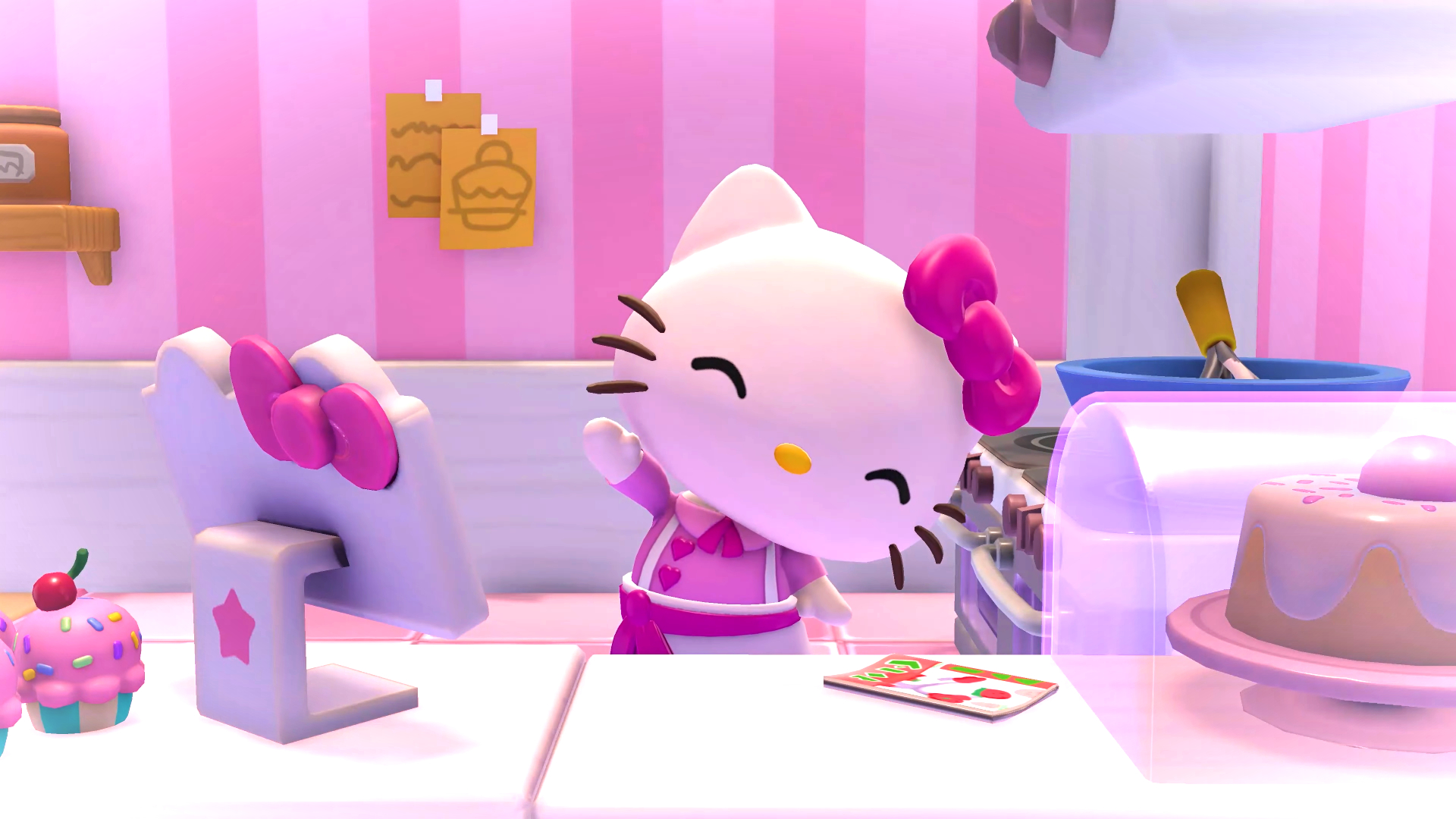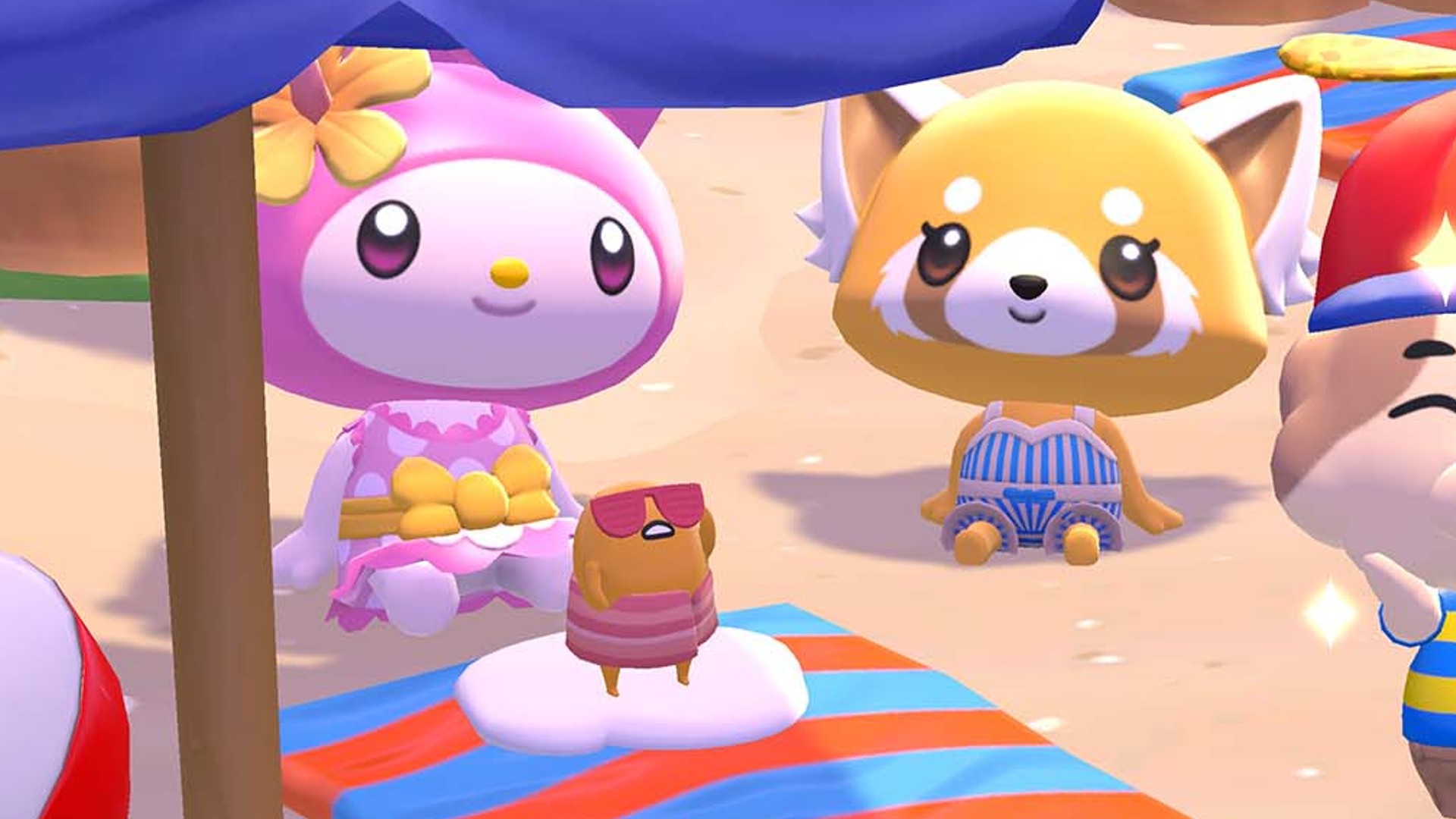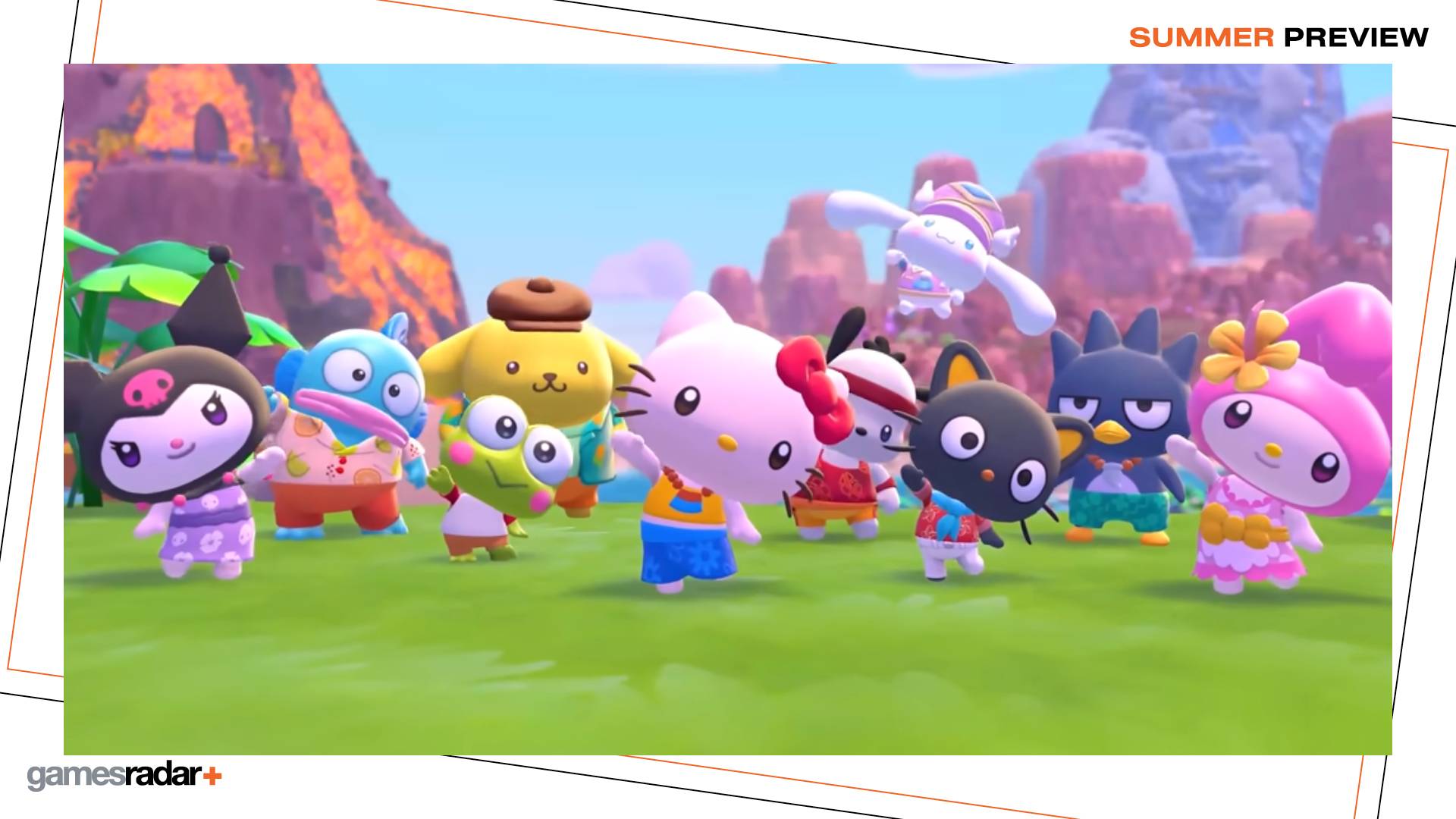
"In some ways we've grown what it means to be a cozy game with our audience." Chelsea Howe, chief product officer on Hello Kitty Island Adventure, is keen to emphasize that there's more to this game than just Animal Crossing with Sanrio characters. Players looking for an alternative to New Horizons should find they "get their needs met," but a licensed, open-world twist on the life sim formula, with all the jumping, climbing, and exploration that includes means that new players are finding their way in too. And that could have a substantial impact on the entire cosy games trend.
Speaking to GamesRadar+ ahead of the announcement that Hello Kitty Island Adventure would be freed from its Apple Arcade exclusivity and make the multiplatform jump to PC, PS5, and Nintendo Switch, Howe acknowledges how this part of the industry has changed in just a few years: "It's really interesting. We've almost gotten to the point where cozy is overused." For Howe, that's a positive - "as a woman in game development, what I read from that is that traditionally feminine motivations are so acknowledged that it's just a given in half the games that are coming out now."
The cozy games trend is nothing new. The likes of The Sims, Animal Crossing, and Harvest Moon, arguably the backbone of this movement, are decades old. The term began to pick up steam through the 2010s before it exploded in popularity in the wake of New Horizons. There are hundreds of games under Steam's 'Cozy' tag, and while the vast majority of them launched in the past couple of years, outliers like 2019's A Short Hike or 2020's Spiritfarer are important milestones in the trend.
Cozy up
Part of that ever-increasing popularity, Howe admits, lies in the fact that it's hard to pin down exactly what a cozy game is: "What I've found is that a lot of people argue about the definition of cozy games." Overall, she says that there's an expectation that aggressive combat or twitchy reaction won't be part of the experience, and that rather than any ambiguity causing problems, it's actually "been great to see the definition of cozy expand to contain more additional motivations, like exploration, like mastery, like inventory management. These aren't just dollhouse games anymore."
But as 'cozy' spreads into more genres, draws in more players, and covers more of those additional motivations, is there a point at which it ceases to mean anything as a term? Is it just a marketing buzzword intended to appeal to a specific type of player? Does a game that tackles tougher themes cease to be cozy? For Howe, the answer to all of those questions is no, because "the way I define coziness is about safety."

"I see that happening a little bit less," she says when I ask her if it's irresponsible to simple throw a 'cozy' logo into the mix as a marketing ploy, "just because I think that the people who go in to make a cozy game tend to be a little bit more aware of issues around psychological safety and all the discussions that are in that realm." Throughout our conversation, she points to Wylde Flowers, a mystical farming sim with obvious notes of Stardew Valley and Harvest Moon, where a major, early story arc deals with the loss of the character's grandmother.
"I do think Wylde Flowers is an example of [difficult themes] being done extraordinarily well. I don't think I've seen other games handle deep or potentially traumatic themes in a way that was as caring." We discuss how personal experiences of something like grief might push a potential player away, but she says that Wylde Flowers was "so good at nurturing you and giving you a community to feel those emotions that it felt deeply safe. There are hard things in the world, but that's reality, and that's us as humans. There are parts of me that are angry and that are hurt and that are grieving."
Sign up to the GamesRadar+ Newsletter
Weekly digests, tales from the communities you love, and more

Island Adventure's devs acknowledge its Animal Crossing play was "really risky," but now they're ready to fix the game's only piece of negative feedback
There are plenty of cozy games that are prepared to be deliberately, entirely softer - Howe's "dollhouse games." But avoiding the instinct to avoid the more difficult things, she says, can be key to making something even cozier. Leaving the harder stuff out leads to "a certain superficiality or emptiness" which, "long-term, doesn't necessarily provide the richness that'll feed people for months or years." By contrast, tackling those ideas, head-on but with that safety net behind the player, "is almost more nurturing than something that intentionally decides to be sugar floss."
Considering Hello Kitty up in this regard might seem antithetical. This is, after all, a figure often held up as one of the most saccharine characters of all time. But Island Adventure is a game intended to be played for a long time, to have that same "richness" that encourages players to keep coming back day after day. Perhaps Hello Kitty herself doesn't embody that depth, but look further into the game's roster of Sanrio characters and you start to find it; in Gudetama's ennui, or Aggretsuko's anger. Whether it can genuinely fill the hole left by Animal Crossing: New Horizons remains to be seen, but as the cozy game trend continues to grow in the wake on Nintendo's phenomenon, it's clear that even Island Adventure's devs aren't prepared to rest purely on the strength of their IP.
You want even more games like Animal Crossing? Look no further.

I'm GamesRadar's news editor, working with the team to deliver breaking news from across the industry. I started my journalistic career while getting my degree in English Literature at the University of Warwick, where I also worked as Games Editor on the student newspaper, The Boar. Since then, I've run the news sections at PCGamesN and Kotaku UK, and also regularly contributed to PC Gamer. As you might be able to tell, PC is my platform of choice, so you can regularly find me playing League of Legends or Steam's latest indie hit.


